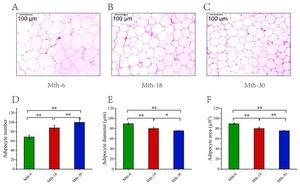The results of the 2025 Delhi Assembly elections are set to reveal whether the Aam Aadmi Party (AAP) will secure its fourth consecutive term, whether the Bharatiya Janata Party (BJP) can finally break its 27-year drought of assembly victories, or if the Congress can make significant inroads after years of decline. The anticipation builds as the counting of votes is scheduled to begin at 8 AM on February 8 at 19 centers across the national capital.
This high-stakes election saw fierce campaigning from all parties, each vying to present their vision for Delhi. AAP leader Arvind Kejriwal, who has maintained his seat since 2013, faces key competition from BJP’s Parvesh Verma and Congress’ Sandeep Dikshit. The election is particularly important not just for local governance but also for indicative trends leading up to future national elections.
Security measures are heightened for counting day, with Delhi’s Chief Electoral Officer, Alice Vaz, highlighting the deployment of approximately 5,000 personnel, including counting supervisors and micro-observers. Special Commissioner Devesh Chandra Srivastava confirmed, "We have made strong security arrangements for counting day." These arrangements aim to guarantee the integrity of the counting process as postal ballots are tallied before moving on to the votes cast via Electronic Voting Machines (EVMs).
The voter turnout for this election reached 60.54%, showing a slight decline from previous elections. The results will come as major news for several constituencies. Notably, AAP’s hold on the New Delhi seat will be closely watched, where Kejriwal won by 21,687 votes last time. The competition is fierce, especially as BJP hopes for a historic return to power after decades of opposition.
With exit polls indicating potential gains for the BJP, AAP has voiced its confidence. "BJP’s Operation Lotus will not succeed at any cost," said Gopal Rai, AAP’s Delhi convener, reflecting AAP's determination to prevent any last-minute party defections amid the election pressure.
The performance of Congress will also be pivotal. Once the dominant party under the leadership of Sheila Dikshit, its recent electoral performances have been dismal. A strong result could mark the party’s return to the Delhi political arena, attempting to reconnect with its historical voter base, particularly minorities and economically weaker sections of the population.
One unique aspect of the 2025 elections is the widespread focus on various voter demographics, including women and middle-class families, which significantly influence the electoral outcome. The AAP, known for its welfare schemes, has introduced initiatives aimed at these groups, emphasizing its commitment to public services such as free electricity and enhanced transportation benefits for women.
Meanwhile, the BJP has made clear its ambitions to appeal to the middle class, promoting financial measures through the Union Budget aimed at uplifting economic conditions for this segment of the electorate. With both parties targeting this demographic, the outcome could tilt the balance of power noticeably.
Past electoral results indicate AAP’s strong foothold among women voters, which they will need to maintain if they hope to stave off any challenges from either the BJP or Congress. AAP is also under scrutiny due to allegations of corruption, factors which might influence undecided voters who might sway during this election.
The expected results will be more than just numbers; they are set to gauge the public’s mood toward major political parties, projecting the effectiveness of their campaigns and the trust they have cultivated through years of governance. Following the counting conclusion, the real work begins—forming the next government, implementing policies, and addressing the issues most pressing to the voters.
Whatever the outcomes show, from potential power shifts to unexpected wins or losses for any party, the 2025 Delhi Assembly elections wields substantial weight, not only for the capital but as pendulum indicators of national electoral dynamics. With the votes cast, the citizens of Delhi now await the results, hopeful for leadership they believe will best serve their needs.



